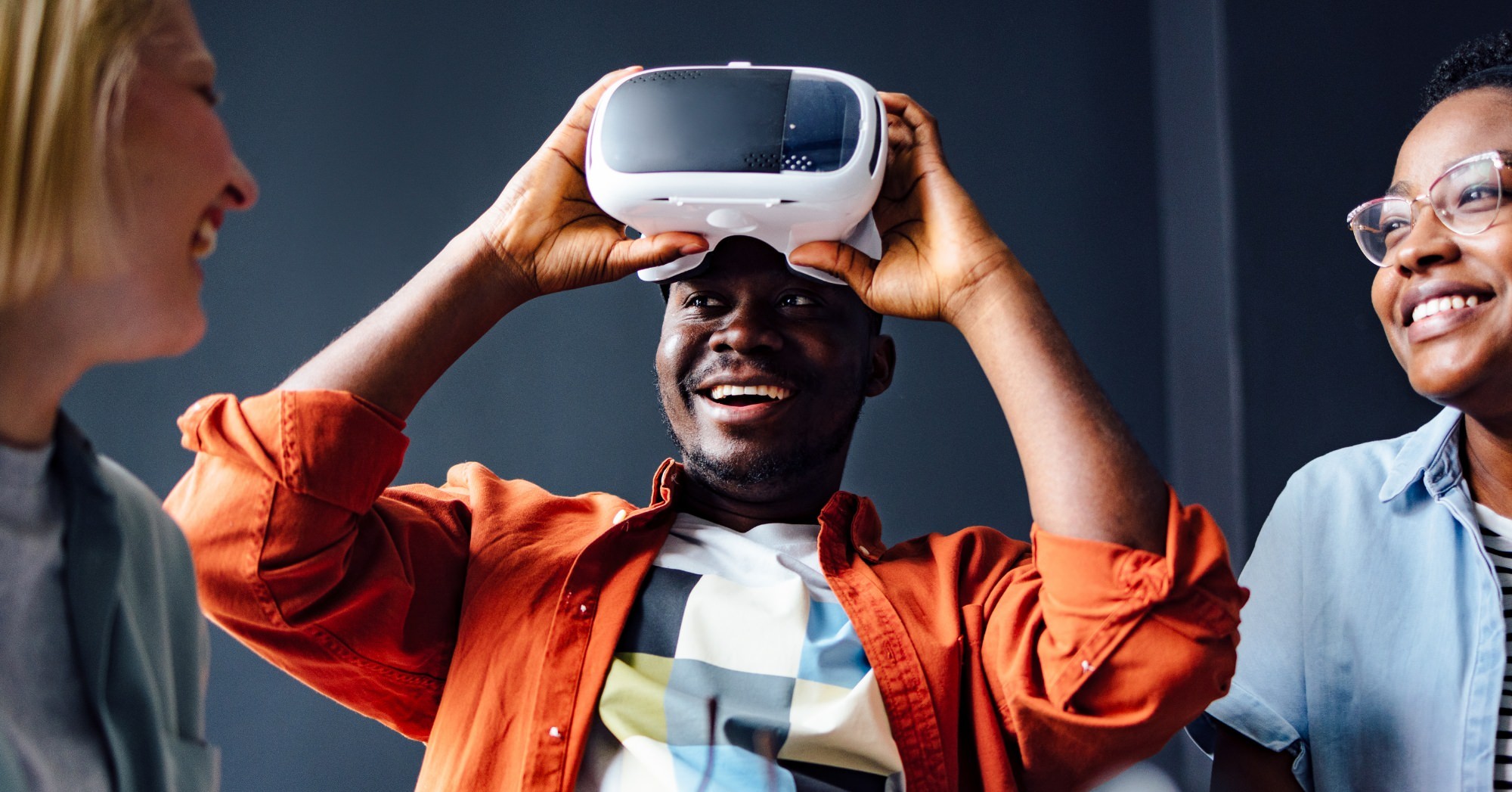
Teaching in the AI-Powered Future
Welcome to the Anthology Education and Research Center Blog Series, Harnessing the Power of Artificial Intelligence (AI). The three-blog series looks at the background of artificial intelligence (AI) in education, as well as the current state, best practices, and thoughts on what the future might hold for AI, ChatGPT, and similar innovations. The series will culminate with a live webinar on Tuesday, March 28.
In 2017, PWC did a survey and found that 72% of respondents believed that AI would be the most significant business advantage of the future. Most recently, ChatGPT has been a hot topic, especially in academic circles. ChatGPT has the potential to encourage education professionals to revisit their current teaching approaches. For example, Columbia Business School professor Dan Wang encourages his students to be upfront in using ChatGPT and to explain how they used it. His students reported that they asked ChatGPT not to do the work for them, but to generate and explore different ideas.
ChatGPT is only one of the latest uses for AI. AI has been revolutionizing post-secondary education for many years, from personalized experiences to intelligent tutoring systems. As educators and administrators work through how to create strategies that include ChatGPT and other AI tools, it is worthwhile to review other forms of AI that are already in regular use.
AI Systems
Personalized Experiences
One of the significant advantages of AI is its ability to personalize learning experiences. With the help of AI, educators can create personalized learning experiences for students based on their learning preferences. AI can also be useful in assessing students' progress and identifying their strengths and weaknesses in real time. Therefore, instructors can offer students targeted feedback and support, helping them learn at their own pace and level. AI can support more accessible digital learning environments by scanning files and flagging potential accessibility faults like contrast and alt text issues or automatically converting content into alternative formats like audio files or tagged PDFs. AI-powered personalized systems can improve student outcomes, increasing engagement and motivation.
Intelligent Tutoring Systems (ITS)
Intelligent Tutoring Systems are another type of application in which AI is making significant strides. An ITS uses AI to analyze student data and provide personalized feedback and guidance. Such systems can adapt to a student’s level of knowledge, providing targeted support to help students learn better.
Virtual and Augmented Reality
While simulations have been used in healthcare, social services, and military training for decades, nursing education has utilized simulated patients to create a lifelike learning environment outside of the clinical setting. AI-powered virtual reality (VR) and augmented reality (AR) now create truly immersive experiences that greatly enhance the overall learning experience. These immersive learning experiences, simulations, and training environments enable students to explore concepts and ideas in a more engaging, interactive, and safe way. What’s more, such systems can adapt to students’ needs and provide personalized feedback and support.
Challenges and Limitations
While the potential benefits of AI in education are significant, there are also some challenges and limitations. One of the biggest challenges is ensuring that AI systems are unbiased and ethical. AI algorithms could perpetuate existing biases and inequalities, mainly if they are based on flawed or biased data. Additionally, there are concerns about data privacy and security, particularly regarding student data.
Further, AI cannot replace instructors. While AI can provide personalized support and guidance, it cannot replace the human connection and empathy that instructors provide. Additionally, AI systems can be inaccurate or unreliable, and there is a risk that they may provide incorrect or misleading feedback to students.
Conclusion
The use of AI in education is still in its early stages, but the potential benefits are significant. Personalized experiences, intelligent tutoring systems, and virtual and augmented reality are examples of how AI has already affected the education industry. However, there are also challenges and limitations, including the need for ethical and unbiased AI systems, and the importance of instructors remains undisputed. As AI technology evolves, it will be essential to ensure that it is used to support and enhance the skill sets of instructors and administrators and promote equality and fair learning opportunities for all students.
In our next blog we will look at ways ChatGPT and AI can be integrated into the post-secondary classroom and how educators are working with and not against AI.
Sources
Rose, D. H., & Strangman, N. (2019). The potential of AI in special education. The Future of Children, 29(2), 125-146.
Baker, R. S., Corbett, A. T., & Aleven, V. (2016). More than a tutor: Supporting students’ learning and affective needs with pedagogical agents. Journal of Educational Psychology, 108(4), 528-541.
Hoadley, C. M., Xu, D., Lee, H., Rosé, C. P., & Chang, H. Y. (2019). Digital learning as a tool for educational equity: A framework for evaluating access and quality in K-12 education. Educational Researcher, 48(8), 519-529.
Dede, C. (2018). Immersive interfaces for engagement and learning. Science, 362(6414), 694-695.
The National Academies of Sciences, Engineering, and Medicine. (2018). The role of advanced technologies in education innovation: Proceedings of a workshop. National Academies Press.
David, E. (2023). Bill Gates and professors at top universities agree: The future belongs to those who master AI like ChatGPT. Business Insider
Bot.Me: A revolutionary partnership (2017) https://www.pwc.com/it/it/publications/assets/docs/PwC_botme-booklet.pdf

Justin Louder
Dr. Justin Louder serves as associate vice president for academic innovation at Anthology. He is the former associate vice provost of Texas Tech University’s Worldwide Learning. Over the last decade, he led TTU through a significant transformation from humble beginnings into a division with regional teaching sites around the state, over 100 different online and distance degree programs, more online or hybrid doctoral degrees than any school in the south, a division wide staff of almost 100, and growing fully online enrollments from 1,200 to over 4,000. He also served as a faculty member in the College of Education throughout his tenure at TTU. He holds a B.A. in communication and psychology from Angelo State University, an Ed.D. in instructional technology with a minor in higher education administration from Texas Tech University, and an M.P.A. in governmental administration from Wayland Baptist University.